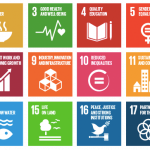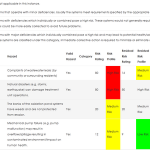KINGFISHER: A South African/Dutch initiative improving IWRM through strengthening municipal water and sanitation services
South Africa is ranked as the 30th driest country in the world. Management of South Africa’s water resources involves catchment and river systems management, water storage, water abstraction, and return flow management. Integrated management techniques are required to ensure that water is both protected and utilised to its full potential.
South Africa’s water resource governance framework is being reorganized, including transfer of responsibilities from the Department of Water and Sanitation (DWS) to Catchment Management Agencies (CMAs). CMAs will play a critical role in managing the country’s water resources. Key water resources partners within a CMA include municipalities, which both utilise water resources and potentially impact on water quality by discharging treated effluent to catchments, thereby impacting on various aspects of Integrated Water Resource Management (IWRM). Given that municipalities use approximately 30% of South Africa’s available water (agriculture uses most at approx. 60%), they are a major role-player in water resource management.
The Netherlands are currently supporting the establishment of South African CMAs through a government to government support agreement known as the Kingfisher Programme, whereby DWS, CMAs and the Dutch Water Utility experts work together towards successful CMA establishment.
There are nine water management areas (WMAs) that are to be managed by nine CMAs, namely Limpopo-North West, Olifants, Inkomati-Usuthu, Pongola-uMzimkulu, Vaal, Orange, Mzimvubu-Tsitsikama, Breede-Gouritz and Berg-Olifants. Currently four CMAs have been established: the Limpopo-North West, Pongola-uMzimkulu, Inkomati-Usuthu and Berg-Olifants. Only the last two are operational.
The initial Kingfisher Programme has been pioneered at the Inkomati-Usuthu Catchment Management Agency (IUCMA), which has trans-boundary responsibilities with South Africa, Mozambique and Swaziland. The Kingfisher Programme is being extended across all CMAs. A recent focus area of the Kingfisher Programme is supporting improved cooperation between the CMA and the municipal WSAs. WSAs depend on the right quantity and quality of water from the resource, and at the same time affect resource quality by discharging treated effluent from wastewater treatment works (WWTWs). Critical WSA municipal water management business issues, if not well managed, will result in severe negative impacts on water resource quantity and quality.
In order to guide engagement with WSAs, the Kingfisher Programme and the IUCMA are using the DWS Municipal Strategic Self-Assessment (MuSSA) diagnostic tool. MuSSA determines both the business health (or conversely, business vulnerability) of 18 key municipal water and sanitation services business attributes, and also the overall rolled-up Vulnerability Index of the WSA’s water and sanitation services function. The 18 “legs of sustainability” (business attributes) cover the full “water services business” of the WSA. These include key municipal benchmarks that are important to DWS, the Department of Cooperative Governance and Traditional Affairs (CoGTA), National Treasury (NT), the Planning Commission/Office of the Presidency, the South African Local Government Association (SALGA) and the municipalities themselves.
The associated MuSSA analysis indicates areas of need for proactive alleviation to avoid negative outcomes, including impacts on the catchment. The Municipal Priority Action Plan (MPAP) is a high level action plan designed to guide the WSA (and sector partners) towards the alleviation of the key business vulnerabilities of the WSA as identified within the MuSSA. Simply put, the MPAP process harnesses an iterative improvement approach using a standard “Plan-Do-Check-Act” methodology of continuous improvement. The MPAP engagement takes place in a facilitated strategic planning workshop environment with key stakeholders including municipal officials (Heads of Department for Finance, Technical Services and Human Resources), the CMA, DWS, and other regional and national stakeholders.
To-date, the Kingfisher Programme has made good “colleague to colleague” progress in strengthening the IUCMA towards meeting its mandate; including early stage engagements with WSAs via the MuSSA and MPAPs towards improving WSA business health and mitigating WSA related impacts on IWRM and the IUCMA.











